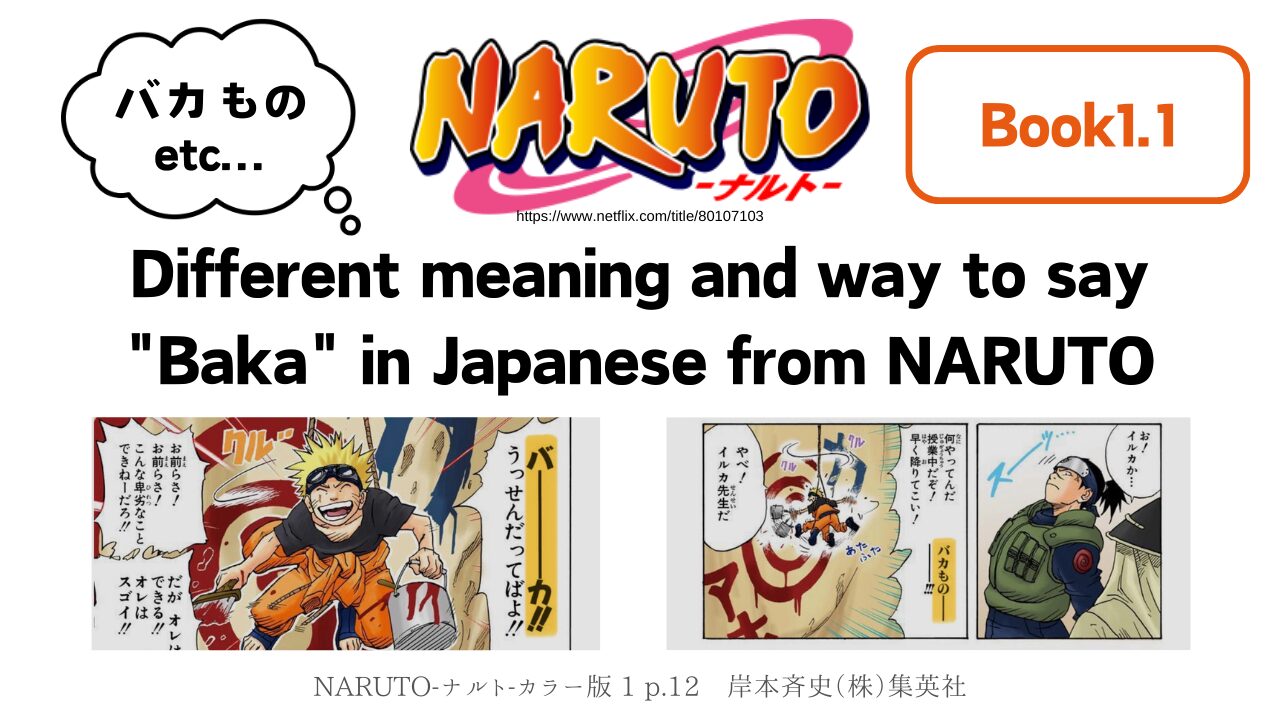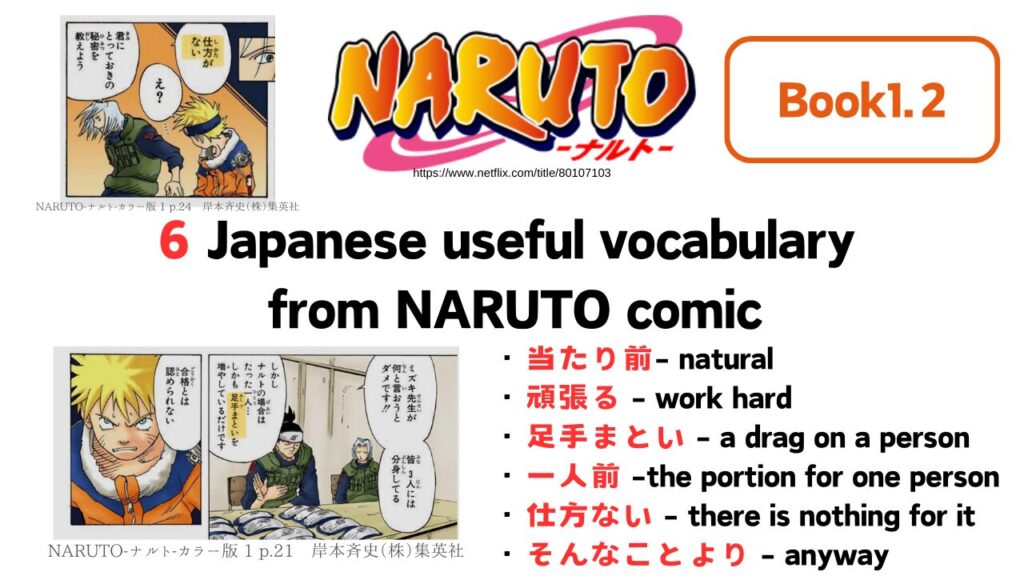
Comic

NARUTO, Digital colored comics, Japanese, 1
Can you say... in Japanese
1.当たり前- a ta ri ma e -
| ひらがな | あたりまえ |
| カタカナ | アタリマエ |
| 漢字 | 当たり前 |
| pronunciation | a ta ri ma e |
| meaning | natural, ordinary, usual, common, obvious, of corse |
Example
This word is used like this↓(conversation between friends)

ナルトって知ってる?
Do you know "Naruto" ?
当たり前じゃん!
Of course!

日本人がそれを知っているのは当たり前だよ
It's natural that Japanese people know it.

An emphatic way of saying

If you emphasize ”当たり前”, it become "あったり前”.

2.頑張る- ga n ba ru-
| ひらがな | がんばる |
| カタカナ | ガンバル |
| 漢字 | 頑張る |
| pronunciation | ga n ba ru |
| meaning | crusade, work hard, do one's best |
"がんばる" (ganbaru) is a Japanese verb that means "to do one's best" or "to persevere." It conveys a sense of putting in effort, working hard, or trying your best in a challenging situation. It's often used to encourage someone or to express determination, such as saying "I'll do my best!"
This word is often used by Japanese people, so you should remember it.

Casual way of saying
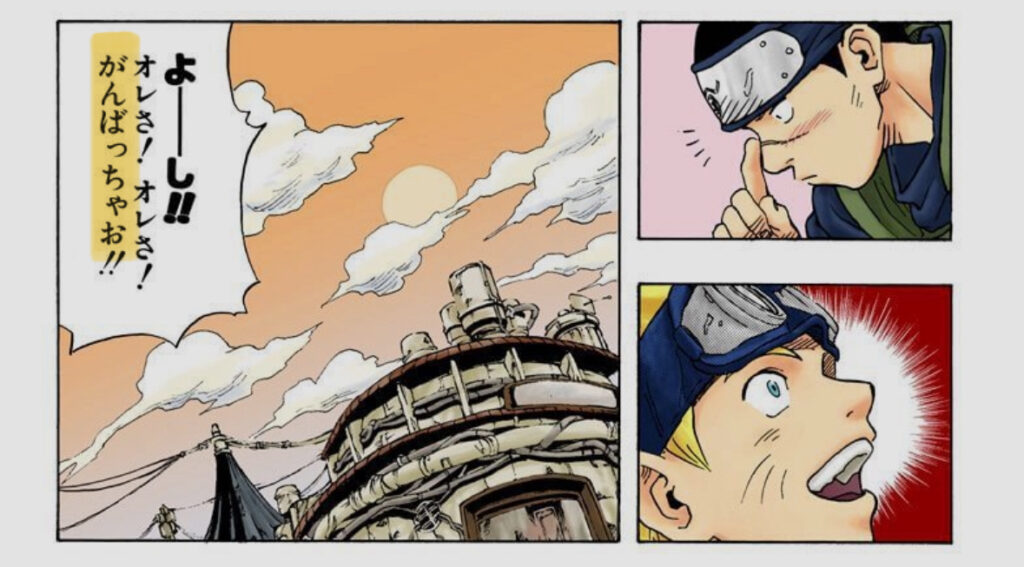
In this scene, Naruto says ”がんばっちゃお” which means that he will try his best and It's another way of saying "がんばる”.

- 頑張ります( I do my best) = polite way of saying
- 頑張る( I do my best) = casual way of saying
- 頑張っちゃお( I do my best) = more casual way of saying
3.足手まとい- a shi de ma to i -
| ひらがな | あしでまとい |
| カタカナ | アシデマトイ |
| 漢字 | 足手まとい |
| pronunciation | a shi de ma to i |
| meaning | obstructive, a drag on a person, be one's trouble |
Example
This word is used like this↓

あの人は足手まといだ。
That person is obstructive.
彼は、このプロジェクトに関しては足手まといになる。
I think he is really dragging us down on this project.


To remember this, imagine a koala with your feet and hands attached.

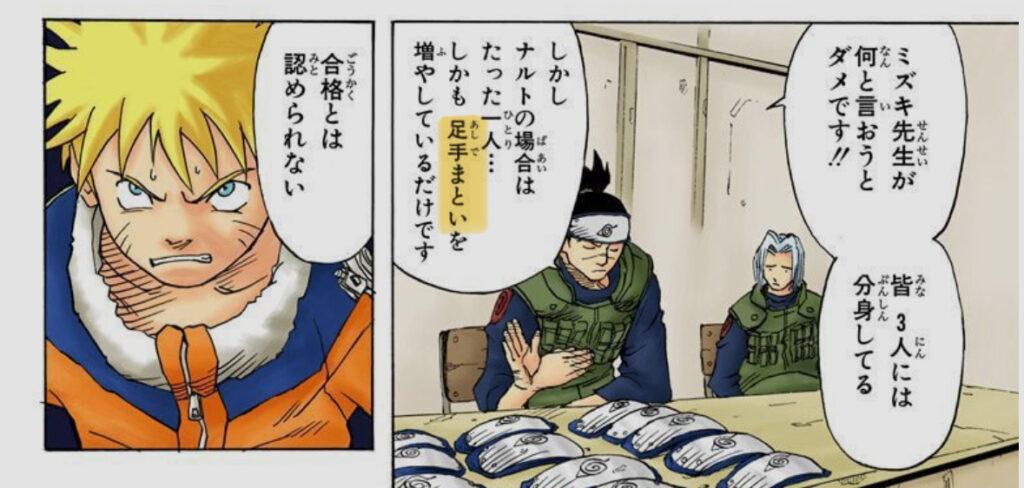
4.一人前- i chi ni n ma e -
| ひらがな | いちにんまえ |
| カタカナ | イチニンマエ |
| 漢字 | 一人前 |
| pronunciation | i chi ni n ma e |
| meaning | the portion for one person, stand on one's own, to come of age, independent |
"一人前" (i chi ni n ma e) literally translates to "one person worth" or "one full portion." In a broader sense, it refers to someone who is considered competent, skilled, or mature enough to stand on their own—essentially, someone who is fully independent and capable. It can also imply reaching a level of proficiency or adulthood in a particular field or aspect of life.
Origin of this words
When you stand your own like you are adult and you work, you can pay and eat adult-sized meals for one person.

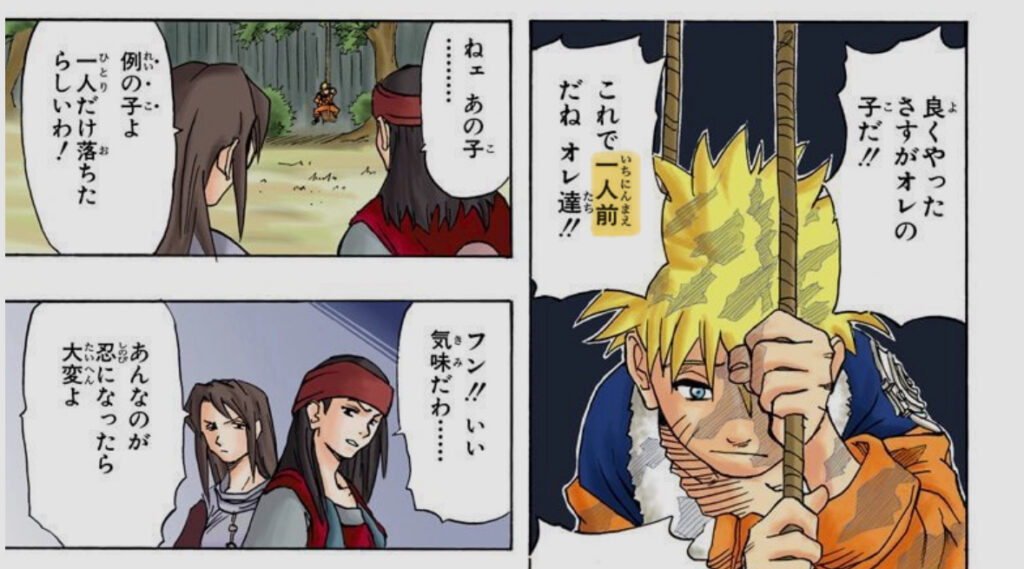
In this scene, the child who passed the graduation exam calls himself ”一人前”.
5.仕方がない- shi ka ta ga na i -
| ひらがな | しかたがない |
| カタカナ | シカタガナイ |
| 漢字 | 仕方がない |
| pronunciation | shi ka ta ga na i |
| meaning | there's no (other) way, there is nothing for it |
"仕方がない" (shi ka ta ga na i) translates to "it can't be helped" or "there's no way around it." It expresses a sense of resignation or acceptance regarding a situation that cannot be changed. People often use it when faced with circumstances beyond their control, conveying a feeling of inevitability or the need to move on despite difficulties.
Condescending meaning

Japanese people use this word when they don't have to say it. For example, ”仕方がない I'll do it for you!" By adding it before the phrase, it has a condescending meaning.
In this scene, Mizuki says to Naruto, ”仕方がない(It can't be helped). I'll tell you a secret.”
Other
Japanese people also use this word like this↓

6.そんなことより- so n na ko to yo ri -
| ひらがな | そんなことより |
| カタカナ | ソンナコトヨリ |
| 漢字 | そんな事より |
| pronunciation | so n na ko to yo ri |
| meaning | more important than that, anyway, but |
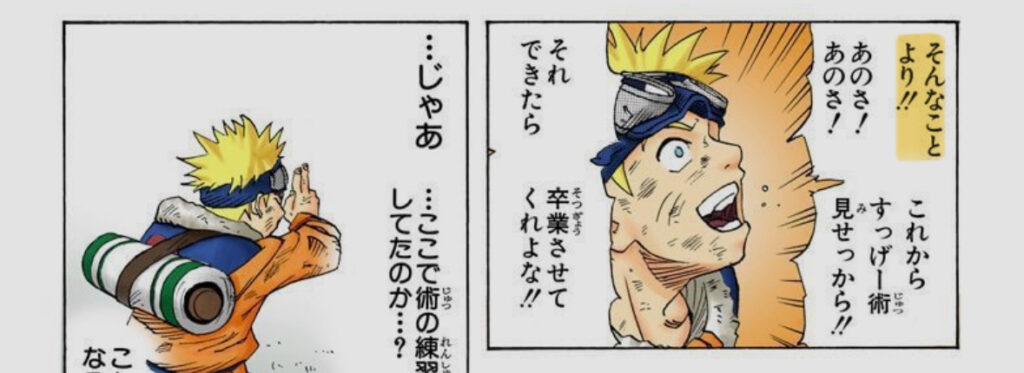
Example

そんなことより、変だと思わない?
Anyway, don't you think it's strange?
何が変なの?
Strange what?

Question
- Anyway
- too cute to handle
- Do your best

